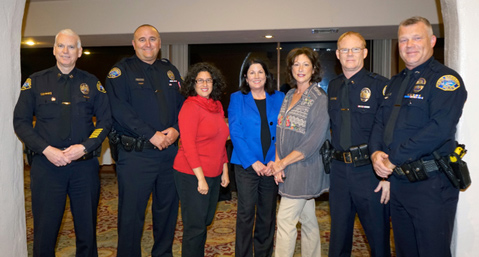Restorative Court Celebrates Three Years of Improving Lives

Restorative Court reached the three-year mark and celebrated its successes in helping people who are chronically homeless and have a long history of mental illness or substance abuse, often experiencing both at the same time. Speakers at the Wednesday event highlighted the hundreds of successful interventions initiated and managed by the project, which gave substantial savings to local government agencies and Cottage Hospital.
The concept began in April 2011 when Commissioner Pauline Maxwell and Restorative Police Officer Keld Hove, who had talked many times about how to positively intervene in the lives they saw, said, “Let’s just do it.” With no budget, only a handful of people, and no formal plan, they began to set aside Wednesday mornings to start a diversionary court that would address the complicated needs of people who were homeless.
The issues that affected law enforcement and the courts were the high number of court cases and calls for service for panhandling, trespassing, or drunk in public. For some homeless individuals, the citations numbered in the hundreds and jail had become a second home. That system worked for none of them, but in Restorative Court’s three years, individuals have been set up with treatment programs and permanent housing, and some were reunited with their families. The positive effect for the once-homeless people and for the community at large has been significant, said participant Emily Allen, a member of the Santa Barbara Women Lawyers, whose foundation sponsored the celebration.
Restorative Court’s achievements have involved cooperative support from a multitude of organizations, including many county departments, Casa Esperanza, Common Ground Santa Barbara County, the Council on Alcoholism and Drug Abuse, Legal Aid Foundation, S.B. Community Housing Corporation, the Salvation Army Hospitality House. Interns from UCSB have also participated, as well as the many who provide housing and supportive services to those served by the court program.



